Photographs: Dominic Xavier/Rediff.com
'When Sikhs were killed in the Afghan-Sikh war in 1837, the Afridis used to bury their heads like flowerpots in the ground,' writer and popular historian William Dalrymple tells Rediff.com's Syed Firdaus Ashraf.
"This obsession of linking Islam and violence is a false one," says writer and popular historian William Dalrymple, whose latest book Return of a King is a historical work based on the First Afghan War.
In the second part of an interesting conversation with Rediff.com's Syed Firdaus Ashraf, Dalrymple discusses how the defeat of the great imperial power in that war is central to what the Afghans think of themselves.
Dalrymple, who has written two widely acclaimed books on the Mughals, counters the view that peace eludes the Islamic world and says that in the last 300 years there have been more instances of Muslim countries being invaded than them being invaders themselves.
"The British are partly responsible for stereotyping Islam. They have a lot to answer for and this book is a story of an unnecessary war waged against a nation which ended in horrible destruction," Dalrymple says in a thought-provoking conversation.
PART I: 'Pakistan is obsessed with the idea of about a billion Indians surrounding them'
Do you feel the Western world still fears Islam as a religion and think of the Crusades when they invade countries like Afghanistan?
Do you think they fear Islam could make a comeback as a potent force?
I think there is a huge ignorance about Islam in the West. 9/11 was a big shock to America as a nation. America is huge and like every huge nation is very self obsessed, China is and so is India.
India constantly looks within itself. If you see any Indian books they talk about them and not about American Presidents (laughs). So big countries are very obsessed with themselves.
America knew nothing of the Islamic world and suddenly 9/11 happened which they had to explain.
So there was a huge amount of fear, misrepresentation, expression of ignorance and we know that results in massive policy failures. As when George Bush tried to pretend that Saddam Hussain is part of Al Qaeda!It was nonsense!
What one has to do as a writer or intellectual is to try and present both the pictures and educate people. This is the point of being a writer and a historian.
Don't you think that Islam is an expansionist religion because historically they have expanded so well and so fast?
(Interrupts) I don't think, I don't agree. If you look at the history of great invasions, certainly, there is story of expansion of Islam in its early days, but the British declared war on every country in the world barring 17 (laughs) I think at some point in the last 500 years.
America has declared war on hundreds of countries in the last 100 years. Look at the Mongol Empire, that is not an Islamic empire and they too declared war on many countries.
Empires come and go. Powerful nations invade weaker nations. I don't think that is no more true in the Islamic world than anywhere else. I don't think Islam is inherently oppressive and inherently...(stops abruptly).
In fact, Islam has been invaded more than they have been invading.
Please click NEXT to read this interview...
'It's possible for Afghanistan to develop like other parts of the world'
Image: The sun sets in Kabul, December 9, 2012.Photographs: Mohammad Ismail/Reuters
Islamic countries have been invaded more times rather than they going out and invading other countries?
Yes. In the last 300 years certainly.
In Return of a King, you mention that many kings right from Nadir Shah to Aurangzeb paid protection money to the Afghans. Do you think believe NATO paid protection money to the Taliban?
The reality is that Aurangzeb while fighting the Marathas felt it was pointless to (also) fight the Pathans of the frontier tribes. He paid them protection money to keep the roads open. The same is the case of Nadir Shah.
The British used to have this saying, 'Thrash the Sindhis, befriend the Baluch, but pay the Pathans' (laughs). I am not advocating that policy (laughs), but that was the 19th century policy of the British rule.
No one has successfully subjugated the Pathans for long.
So you think NATO must not have paid the Taliban?
There have been scandals where security companies have been paying the Taliban not to attack their convoys. It is certainly one way of dealing with the problem.
I firmly believe it is quite possible for Afghanistan to develop like other parts of the world. There could be road building, local governance, education, sanitation.
The tragedy is that the international community took their eyes (away) from Afghanistan when they went to invade Iraq.
All the money promised to redevelop Afghanistan was never used. The money had to go to Afghanistan only for security.
Even after ten years and spending billions of dollars in Afghanistan, there are no decent roads in Afghanistan.
No streetlights. No rubbish collection.
The Afghans look at that and wonder where has all the money gone because they don't see their cities changing.
One thing you do see is the advancement in education. Every morning in the cities of Afghanistan you see school kids and young women in veils heading off to schools in big numbers.
Roads, administration, the illiterate civil service, all things that the West could have spent money on have been completely neglected.
Even the poorest and worst parts of Pakistan or the very worst administered part of Jharkhand or Bihar don't compare to the terrible neglect in basic infrastructure that you find in Afghanistan.
If only we had not spent huge money on armaments, drones and Humvees -- instead of that we had only spent money on education and infrastructure, we would have seen a very different outcome of Afghanistan.
Please click NEXT to read this interview...
'In some parts of Afghanistan there's a very aristocratic disdain for India'
Image: The Taj Mahal, the lasting symbol of Mughal architectural glory.Photographs: Brijesh Singh/Reuters
What will your next book be about?
This is my third big narrative history. I have done three books, set in the late 18th and early 19th century. White Mughals, The Last Mughal and now Return of a King -- three snapshots of 19th century history.
This book is as good as I can do in this form. I am very much at peace with this book. The natural arc of the story is so extraordinary.
I stumbled upon a very good subject and was lucky to find these sources in Afghanistan.
I would love to do something big like cultural history or artistic history. There is a wonderful book from Russia called Natasha's Dance by Orlando Figes, who has told the whole cultural history of Russia using this wonderful method.
I am thinking of something big on these lines. It is very early days and I have not found my map yet through this landscape. That is the landscape I want to travel through my artistry.
I am a trained art historian. My last project was on Mughal paintings in New York.
Is it true that one of your great-great-great-granduncles, Captain Colin Mackenzie, fought in the First Afghan War?
He is one of them. I had read his book, but I had no idea at that time he was my great-great-great-granduncle. He was married to my aunt and was not my blood relation.
The story is full of unbelievable idiots (laughs) and also lot of pleasant people. Norton (General William Not) is sort of a jealous, pigheaded, bureaucrat. Burnes is always going with his own ambitions.
Leading British General Elphinstone (the commander-in- chief, Major General William Elphinstone, cousin of Mountstuart Elphinstone) is a complete idiot.
One or two guys come out with any saving grace. George Rawlinson is one of them and the second one is my uncle and I am very proud of that.
In your book you mention that the Afghans are hawks and the Indians are like Carrion crows. Is that so?
These are not my words. These words are of Mirza Ata (an Afghan writer of that time). I cannot make such racist statements (laughs).
(Ata also said) Afghans have seen themselves as free mountain people and they looked down on Hindustanis who were conquered by the British and earlier by the Mughals.
You still find in some parts of Afghanistan a very aristocratic disdain for India. Mirza Ata has more disdain for the British. He also says somewhere that Indians don't have the sense how to present themselves and how to dress. God save me from their dal and their miserable chapatis (laughs).
Please click NEXT to read this interview...
'The defeat of the British is central to how Afghans think of themselves'
Image: The Afghan Church in Mumbai.Photographs: http://en.wikipedia.org
How far did the concept of jihad and martyrdom matter to Afghan soldiers fighting Westerners then and now?
The rhetoric of the resistance is extremely jihadi and Islamic. When there are public announcements they are calling themselves soldiers of Islam declaring themselves to be fighting the kafirs.
When you look at the individuals involved it is more complex. (warrior-aristocrat) Abdullah Khan's girlfriend gets seduced by Burnes and he fights to retain his honour.
Amanullah Khan fights because his land has been confiscated. Mian Masjidi (had intially supported the British, but later turned against them) has offered to surrender to the British, but they attack his home and kill his family, so he fights against them.
Behind the rhetoric which is very much one of jihad, there is individual human motivation in all its complexity.
What do the Afghans think of the First Anglo Afghan war?
It is their freedom struggle. The main diplomatic quarter of Kabul is called Akbar Khan after the resistance leader. He is remembered because his faction won. He is in the Afghan psyche.
What Chankayapuri is to New Delhi; Akbar Khan is to Kabul.
Even in tiny little Afghan villages names like Burnes and Norton are remembered though they have been forgotten in Great Britain.
The defeat of this great imperial power by their tribesmen is absolutely central to how Afghans think of themselves.
When America was about to go into Afghanistan in 2001-2002, Mullah Omar asked the Afghans whether they want to be remembered as the sons of Shah Shuja or Dost Mohammad Khan?
He then did what Dost Mohammad did. He went to the Ahmed Shah Durrani mausoleum in Kandahar and got the shirt of the Prophet and declared himself Amir-ul-Momin (Leader of the Faithful).
You mention how the Afridi tribe tortured the British and how they badly mutilated the dead bodies. Is that true?
It is true. The Afghans amazed the British. There was a huge risk for them to go and rescue the bodies of their dead soldiers. They could not go back and retrieve the dead bodies of every fallen soldier. They desecrated their enemy's bodies.
The Sikhs too did the same thing. This is something of a regional tradition rather than Islamic tradition.
When Sikhs were killed in the Afghan-Sikh war in 1837, the Afridis used to bury their heads like flowerpots in the ground which has been largely forgotten.
Is that the reason why Nicholson turned against the Muslims and Islam and vented his anger in 1857 war?
Yes, this is what I like about how these three books end. In White Mughals, the main villain is Henry Russell who seduces Khair-u-nissa. Norton, who is the villain from the British side, is the protege of Henry Russell.
Then on the other side at the end of this book John Nicholson sees his brother being killed and his body desecrated -- he turns out to be the villain in The Last Mughal.
These three books are linked, it is like a trilogy.
Please click NEXT to read this interview...
'India is a uniquely successful post-colonial society'
Image: 'India has been able to keep democracy and the rule of law in spite of corruption,' says William Dalrymple.Photographs: Reuters
Do you think the Muslim world and the West can live peacefully in the future?
Of course I do. You seem to be very troubled by the Islam side. Your questions keep coming back: 'Is Islam a threat? Are Muslims a problem?'
I don't believe Muslims are a problem and I don't think Islam is a threat.
There are leaders in the Islamic world (who) a lot of us admire -- not the heads of the ISI or the leaders of Lashkar-e-Jhangvi.
There are militant leaders in many parts of the world. I don't think there are more in the Islamic world than elsewhere.
We don't find peaceful places in the Islamic world.
I totally dispute that. There are many peaceful places in the Islamic world. Some wonderful countries, I have been quite happy traveling through the Islamic world.
The developing world as a whole has many problems. India is a uniquely successful post-colonial society which has been able to keep democracy and the rule of law in spite of corruption.
We all know about the many problems of Indian politicians and so on. Despite that, if you look at the wider developing world and post-colonial world, there is violence in many parts of world.
Look at Africa. It is far poorer and far more violent than the most of the Islamic world.
This obsession of linking Islam and violence is a false one. You find this in post colonial societies which are developing.
There are violent strands in Islam. There are organisations like Al Qaeda and Lashkar-e-Jhangvi. You have Muslim leaders who are militant, but there are many peaceful Muslim leaders and fabulous Muslim countries like modern Turkey.
Go to Istanbul, you will find it like Bombay, if not more so. You need to be balanced about it. There is Malaysia.
There are many wonderful places and I certainly bristle when people say Islam is about violence and strife.
You wrote in The Last Mughal how British stereotyped Muslims and Islam in history after the 1857 war.
The British are partly responsible for stereotyping Islam. In the 19th century the British used to try and present Islam as a violent religion which opposed the peaceful religion of Christianity.
If you were a colonised British subject you didn't see the other way because the British were the ones who had expanded the most.
I believe there are good things and bad things that British have brought to the world. I would not take the view that everything what they did was wrong.
But they have a lot to answer for and this book is entirely a story of an unnecessary war waged aggressively against a nation which ended in horrible destruction and waste.
It is a cautionary tale for imperial powers for the future.

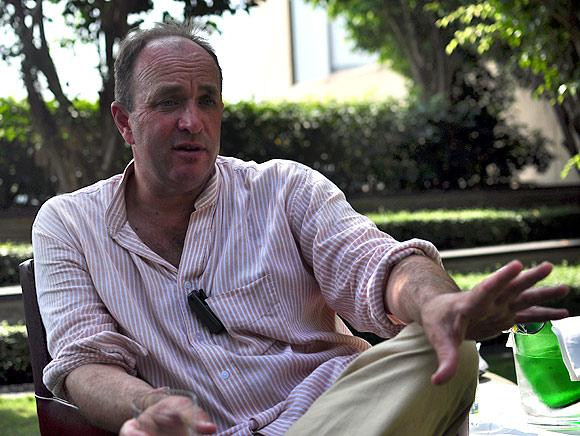
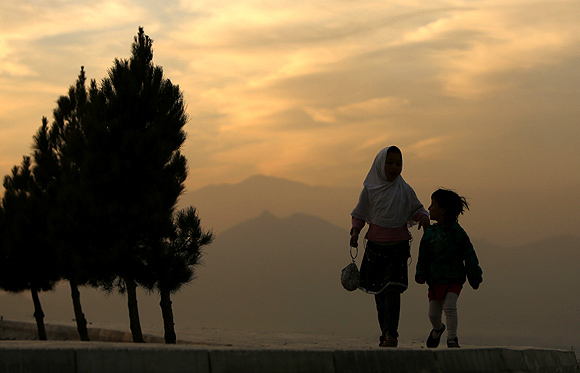
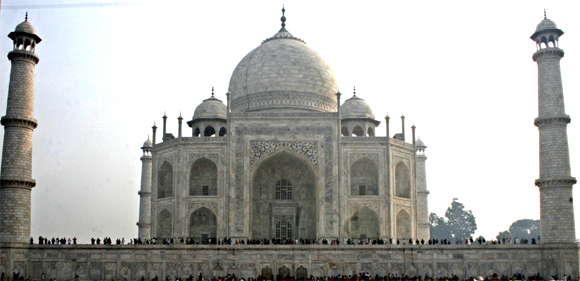
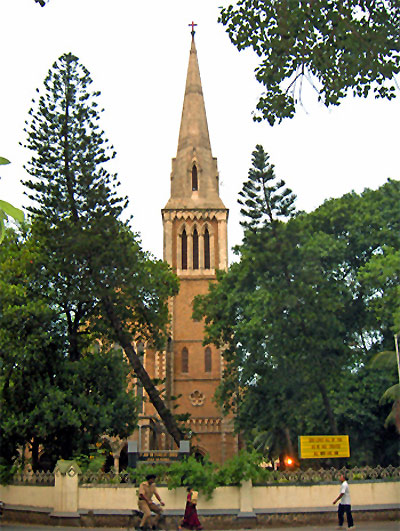
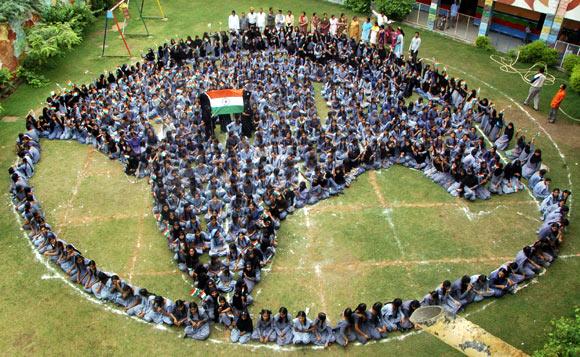
article